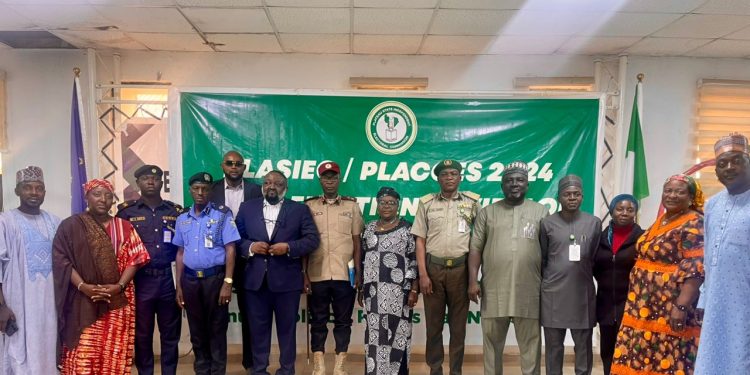The Plateau State Independent Electoral Commission (PLASIEC) convened a post-election review with the Plateau State Advisory Consultative Committee on Election Security (PLACCES) from December 19-20, 2024, at the National Institute of Policy and Strategic Studies (NIPSS) in Kuru. The review assessed the October 9, 2024, local government elections and explored ways to enhance the state’s electoral processes.

In his opening remarks, Hon. Plangji Daniel Cishak, PLASIEC Chairman, expressed gratitude for the participants’ attendance despite the short notice. He underscored the importance of post-election reviews in improving electoral processes, calling it a vital stage in the electoral cycle. Hon. Cishak highlighted earlier engagements with tertiary institutions, civil society organizations, the media, political parties, and PLASIEC staff, which provided valuable insights. He commended the peaceful conduct of the October elections, attributing the success to meticulous planning, collaborative efforts, and robust security measures.

Sylvanus Yepe, delivering the first paper, emphasized the transformative role of electronic technology in electoral security. He noted that tools like biometric verification and voter authentication systems have bolstered transparency, reduced fraud, and fostered inclusivity. However, he stressed the need for robust cybersecurity, public awareness campaigns, and effective implementation to strengthen democratic processes.

Hon. Setley Daze, a former INEC National Electoral Commissioner, delivered the second paper, focusing on post-election reviews as a cornerstone of democratic growth. He identified recurring electoral challenges, including violence, voter apathy, and rigging, and recommended comprehensive voter education, media impartiality, and adherence to credible electoral practices to build trust in the process.

Dr. Plangsat Dayil presented the third paper, examining the interplay between PLASIEC’s preparedness and ethno-political conflicts in Plateau State. She highlighted conflict drivers like political interference, ethnicity, and resource disputes. Dr. Dayil stressed the difficulties of organizing elections in insecure areas with challenging terrain and emphasized the need for conflict-sensitive election planning.

Participants provided feedback on logistical challenges from the October elections, including late vehicle provision, inadequate staff transportation, and insufficient planning. A.M. Daiyabu, representing the Plateau State Commissioner of Police, recommended timely preparations, vehicle inspections, and efficient resource allocation to enhance future election operations.
The review reinforced PLASIEC’s commitment to transparency, collaboration, and continuous improvement, setting the stage for more credible and peaceful elections in Plateau State.





















